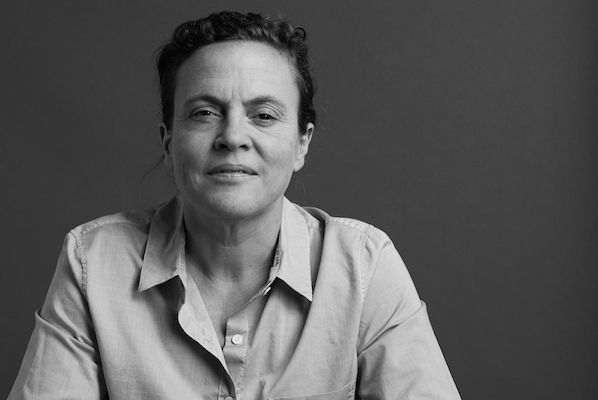On the sunny patio of her new restaurant, Arguello, a Mexican eatery in the historic Presidio Officers’ Club, restaurateur Traci Des Jardins takes a sip of her hibiscus agua fresca and unleashes an impassioned defense of undocumented immigrants. “I think it’s appalling that we have not done more for the Latin American population. I think it’s a failure of our federal government not to recognize how much this population has contributed to our society. From an immigration standpoint, they get the short end of the stick. Absurd!”
And just like that, Des Jardins—daughter of a Fresno sugar beet, cotton, and rice farmer; granddaughter of poor Mexican immigrants; and employer of many a hardworking Hispanic cook, waiter, host, food runner, and busser—throws down the gauntlet. (Presumably, San Francisco’s enduring status as a sanctuary city—a “safe haven” in which city employees do not aid federal immigration enforcement—gives Des Jardins some confidence to voice her personal conviction.)
Des Jardins’ stake in the matter is clearly personal, and since 2002, she’s been able to use her food and cooking expertise to help immigrants. As a board member at La Cocina, the SF nonprofit incubator for low-income immigrants aspiring to be food-world entrepreneurs, Des Jardins plays a role in making the American dream come true.
“A lot of immigrants don’t want to be documented; they don’t want to be ‘on the grid,’” she says. “I know how much fear is involved for the La Cocina entrepreneurs to make their businesses official. And we’re there to assure them that they’re not going to be deported, and that everything’s going to be OK.”
In 2012, La Cocina supported 39 businesses, which generated $3.35 million in revenue and created 110 jobs. Among those successful enterprises is El Huarache Loco, which began in 2000 when La Cocina graduate Veronica Salazar decided to sell Mexican huaraches—fried masa cakes topped with a slew of cultural ingredients, from nopales to chorizo—out of her living room. The Mexico City native is now shacked up, with her 22 employees, in a classy brick-and-mortar at Larkspur Landing. “She’s there alongside the big guns—Belcampo Meat Company, Rustic Bakery, and Miette,” says a proud Des Jardins.
When Salazar opened her eatery, Des Jardins offered her advice (“add barbacoa to the menu more often,” “use stainless steel pans to cook the green chile enchiladas,” “broadcast the daily specials on a big chalkboard”). “As a restaurateur, you have to listen to feedback,” she says. “You might not act on all of it, and that’s OK, because you’re creating your own identity, but you at least have to listen. If you don’t, you’re not going to be good at what you do.”
La Cocina flourished in 2013: Revenue from the incubated businesses, which include such grocery store fixtures as Kika’s Treats and Clairesquares, generated $4.1 million and created 155 jobs. The organization also held its first benefit gala that year, raising $100,000 in one night. Des Jardins and her friend, Discovery Channel personality Adam Savage, donated an intimate dinner at Jardinière, hosted by the chef and the MythBuster. The guests feasted on such dishes as a “space burrito salad,” which Des Jardins and NASA developed for astronauts, and a turkey dinner entrée inspired by the one cooked under the hood of a car on MythBusters in 2012. Although the gimmicky repast wasn’t exactly on par with the refined French fare the Hayes Valley restaurant is famous for, Des Jardins didn’t bat an eye.
“Traci is as salt-of-the-earth as it gets,” says Savage, who admired her ease and authenticity when she was a contestant on season three of Top Chef Masters. “She has this kind of frontier spirit that comes from her upbringing on the farm. She understands where food comes from, and she understands how it gets to the table.”
Which is to say, from the hands of migrant laborers, working in the fields, or in the restaurants, or anywhere else in the food-supply chain, for that matter. “We have our heads in the sand in terms of what the Latin American community does for this country,” she says. “They take jobs most people don’t want. They’ve got beautiful spirits and humble dispositions—and an amazing work ethic. They’ve scraped and scrambled to get here, to make a living, to take care of their families, and to put food on their tables. It’s important, at least for me, to give back to them as much as possible.”
Des Jardins’ empathy might be the most valuable asset she provides to La Cocina. “Traci really understands what the barriers in the food industry are, not just for women but for immigrant women,” says Caleb Zigas, La Cocina’s executive director. “Just having her around inspires faith in our entrepreneurs.” Savage drives the point home with a beautifully astute observation: “If La Cocina weren’t around, Traci would have invented it.”
This article was published in 7x7's December/January 2014 issue. Click here to subscribe.
Related Articles
